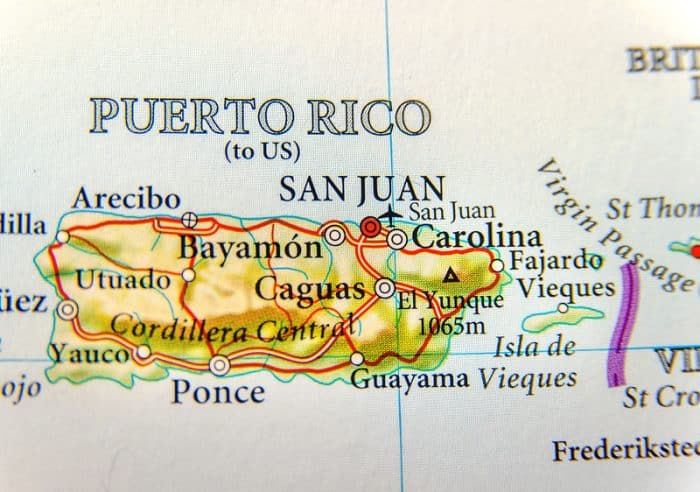Coalition of 28 organizations files amicus in support of solar rights in Puerto Rico

A coalition of 28 organizations filed a “friend of the court” brief (amicus) in federal court to support the continued expansion of solar power in Puerto Rico.
The group, which includes leading U.S. and Puerto Rican nonprofits, solar and battery companies, filed a “friend of the court” brief (amicus) in federal court this week to stand against the Financial Oversight and Management Board for Puerto Rico (FOMB). The coalition argues that FOMB’s legal attack on Act 10 — a law extending Puerto Rico’s net metering program through 2030 — threatens the island’s progress in solar energy and resilience.
Act 10, signed into law in January 2024, was passed unanimously by the Puerto Rico House and Senate and was unopposed by the island’s regulator. The law aims to ensure continued access to affordable solar power for Puerto Ricans, by giving solar customers credits on their power bills for every excess kWh of solar energy they shared on the power grid. Net metering, originally created by law in Puerto Rico in 2007, has been a lifeline for communities affected by years of ongoing power blackouts.
“Ten percent of Puerto Rico’s houses now have solar with backup battery power thanks to the policy of net metering,” said PJ Wilson, executive director of the Solar and Energy Storage Association of Puerto Rico (SESA). “We’re fighting for the ability of the other 90% to be able to as well.”
The coalition amicus brief supports defensive positions taken in court by the defendant, Gov. Pedro Pierluisi, and by the President of the Puerto Rico Senate, José Luis Dalmau, who has asked for the lawsuit to be dismissed on the grounds that FOMB lacks the authority to interfere with implementation of Act 10, a law which essentially moves the potential sunset date of a longstanding law from one year to another.
The brief explains that FOMB’s opposition to solar power disregards unanimous votes for Act 10 across all five political parties in Puerto Rico’s legislature, spanning the whole political spectrum. The coalition argues that law enjoys widespread support, including a May 2024 letter from 21 members of the U.S. Congress urging FOMB to drop its harmful attack on solar. A coalition of national and Puerto Rico nonprofits has also called upon the White House to help.
“Net metering is more than a policy. It’s a pathway to hope for Puerto Ricans facing frequent outages and high energy costs,” said Javier Rúa Jovet, public policy director for SESA. “This coalition is standing up to defend net metering because Puerto Rico deserves a reliable, clean energy future that FOMB’s actions seek to undermine.”
FOMB is a temporary oversight agency created by the U.S. Congress in 2016 in reaction to the island’s financial collapse at the time. The primary charge of FOMB was settling the island’s debt, and the entity will dissolve after all bankruptcies on the island are settled, Puerto Rico has regained access to the capital market, and the government has four balanced budgets. All bankruptcies are currently settled except that of PREPA, the island’s sole electric utility.
Abby Hopper, president and CEO of the Solar Energy Industries Association (SEIA), one of the entities that signed the Amicus, said that “smart policies like net metering truly anchor the broad adoption of solar, and in Puerto Rico, that translates into reliable and resilient energy.”
Hopper added that “the recent challenge to net metering in Puerto Rico is problematic because it very simply makes it more difficult for residents to produce their own power and save money on their monthly bills. As Puerto Rico works towards their goal of reaching 100% renewable energy while building out a resilient and reliable energy system, it is critical that we fight to protect net metering on the island.”
Rúa Jovet called the FOMB’s lawsuit an “arbitrary attack on Puerto Ricans” that lacks legitimacy.
“Net metering is the most fundamental public policy that allows our people, particularly those with low and moderate incomes, to have affordable access to solar energy,” Rúa Jovet said. “There is substantial evidence that the over 900 MW of net metered solar deployed in the island across over 130,000 homes greatly benefits all Puerto Ricans both economically and environmentally. That is why we commend the Governor, the President of the Senate, and the other organizations involved in the case, Solar United Neighbors and Sierra Club, for defending net metering against this attack, and why demand FOMB to simply withdraw this senseless lawsuit, posthaste.”





Comments are closed here.